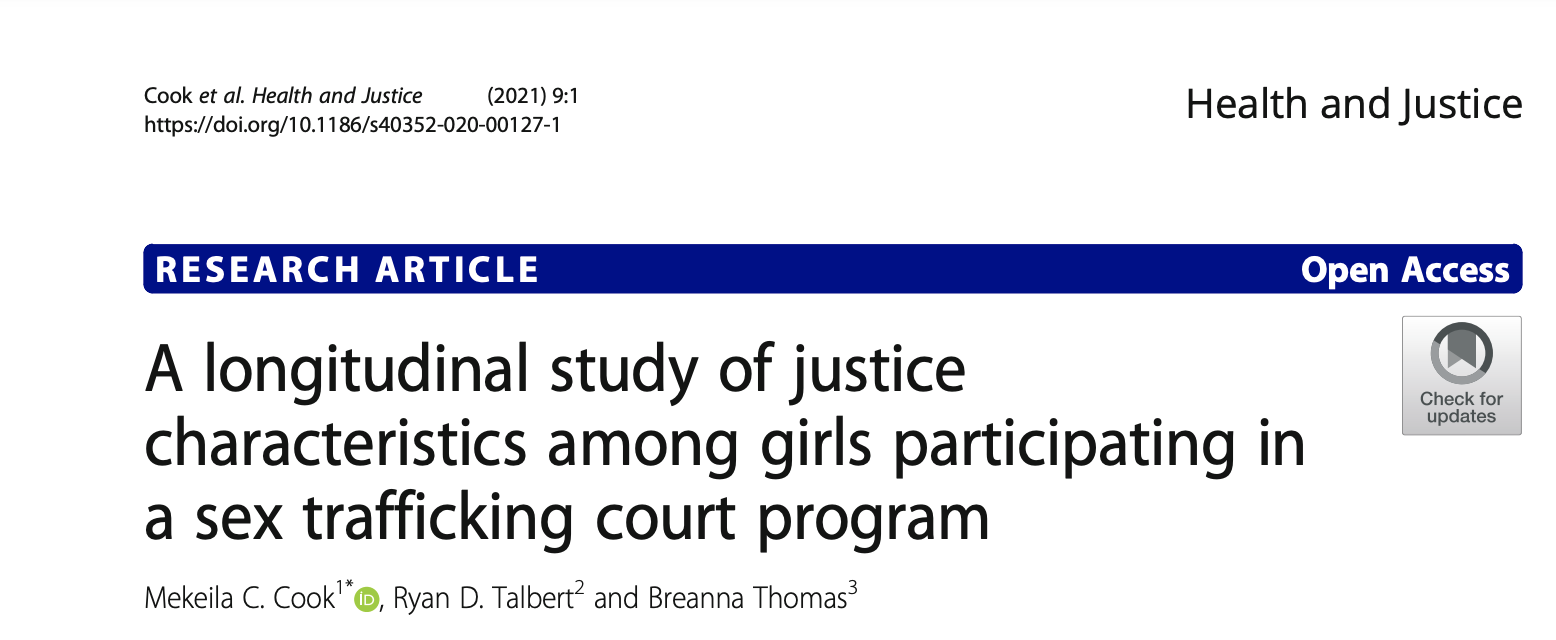
Study of Justice Characteristics Among Girls Participating in a Sex Trafficking Court Program
Abstract
Background:
Sex trafficking is a public health and social justice issue that has traditionally been addressed with criminal justice solutions. Because many sex trafficking survivors are incarcerated for crimes related to their exploitation, specialty, human trafficking courts were developed to offer resources and assistance to labor and sex trafficking survivors. This study assessed justice-involved youth participating in a specialty, anti-trafficking court program. The purpose of this study was to investigate justice-related outcomes of participants in a specialty court program. We examined: (1) the relationship between age at first citation and justice characteristics (number of bench warrants, number of citations, number placements, and number of times ran away); and (2) the number of months between first citation and enrollment into the program with the aforementioned justice characteristics. We used negative binomial models to estimate the relationships between age at first citation, number of months between first citation and program enrollment, with the four justice characteristics (n = 181).
Results:
Adjusted models showed that younger age at first citation was associated with significantly more bench warrants and citations while in the program. Likewise, fewer months between first citation and program entry was related to more bench warrants and citations.
Conclusions:
There is a need to evaluate the appropriateness of specialty, trafficking court programs in reducing continued justice involvement and these programs ability to meet the evolving needs of sex trafficking survivors over time. We recommend universal screening for trafficking indicators for all systems-involved youth and relocating trafficking specialty courts out of juvenile courts to dependency courts.
Read the entire study here.
